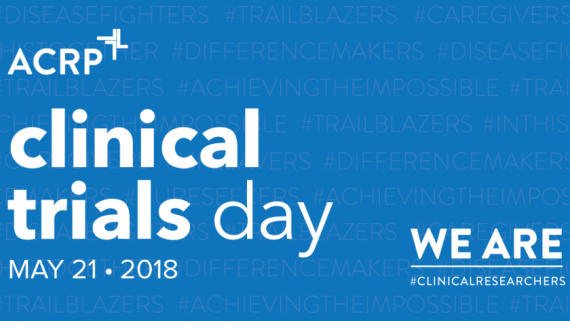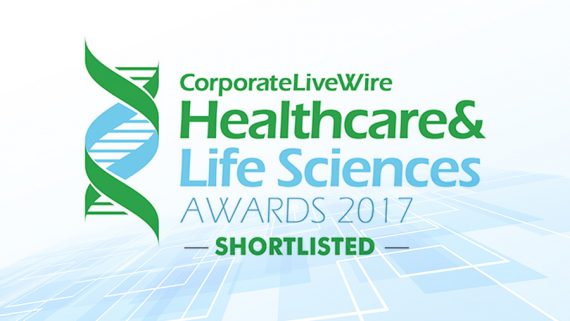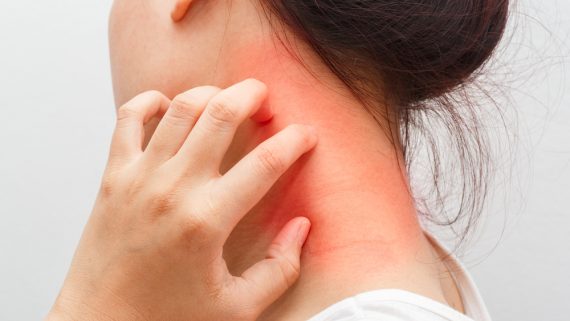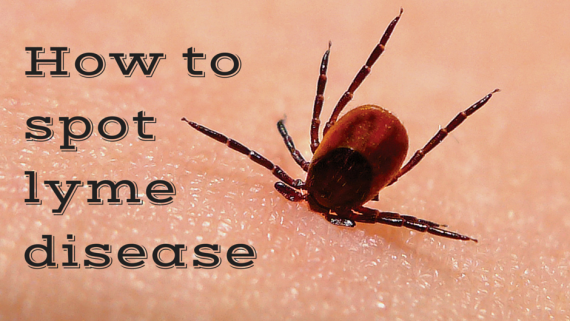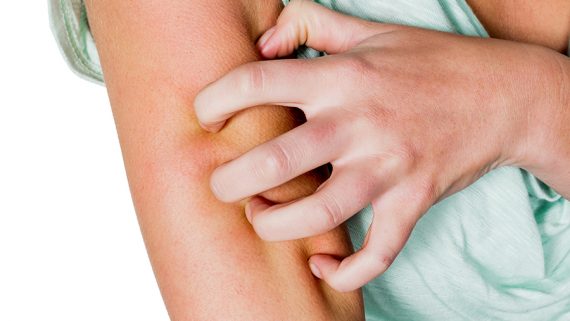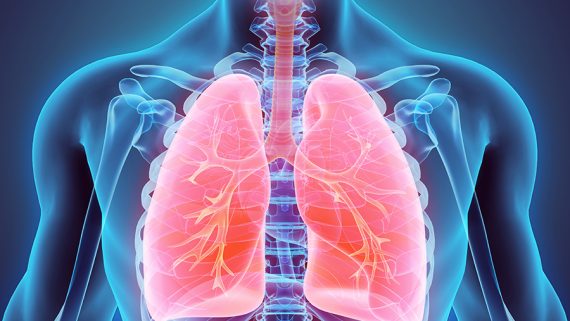

On Tuesday 6/19, ActivMed participated in a presentation done by the Alzheimer’s Association at Langdon Place of Dover in Dover, NH.
Kendra and Victoria both spoke on our current clinical studies and how people can get involved. Laura spoke about ActivMed’s history and locations, as well as the need for active participants.
It was a great event with 25 in attendance and many questions asked!
Psoriasis
is a disease that causes red, scaly patches to appear on the skin. It typically occurs on places like knees, scalp, and elbows, but can really show up anywhere. The uncomfortable rash can sometimes itch or burn. Psoriasis doesn’t stop at the skin. While the physical struggles associated with skin issues can be considerable, the disease can also affect your mental and emotional health.
According to the National Psoriasis Foundation, people with psoriasis are more likely to suffer from depression. The stigma associated with visible psoriasis can also make people depressed.
The red, scaly patches can be embarrassing. Many people will opt to wear long sleeves to conceal their psoriasis, and in the summer this is especially hard as heat and sweat can make psoriasis worse. While you may be anxious about showing too much skin, you don’t want to allow yourself to become overheated.
Many people will notice that their symptoms seem to improve during the summer months. While you may notice a reduction in your skin patches with added sunlight, remember to limit your sun exposure! Getting burnt could trigger a flare.
While psoriasis is one of the most common skin diseases, there is no cure. If you or someone you love is struggling to manage psoriasis symptoms, ActivMed is currently enrolling in studies for those seeking potential new treatment options. Qualified candidates who participate will receive study-related care at no cost and receive compensation for travel. To learn more and see how you or someone you love may qualify for a study at our Beverly location click HERE or at our Portsmouth site, click HERE.
What a great presentation Dr. Portney did last week at the Andover Senior Center to a group of people who are either suffering from Parkinson’s Disease or have a loved one suffering. He answered many questions and discussed the research going on at ActivMed in Methuen. His presentation gave some hope of finding a cure with the help of great research.
Atopic dermatitis, also known as eczema, is a condition that causes skin to be red and itchy. The itching can be so uncomfortable it can get in the way of daily activities and cause problems when it comes to sleeping. It most commonly appears on the face, backs of the knees, insides of the elbows, hands and scalp.
The National Eczema Association estimates that over 31 million people in the U.S. have some form of eczema. Unfortunately, there are a lot of misconceptions surrounding this common skin condition. Here are just a few to help you understand eczema a little bit better.
- Eczema is contagious. This is a big one we hear all the time. You can’t ‘catch’ eczema from someone who has the disease and you can’t give it to someone by touching them if you have it.
- Eczema and acne are the same. This is false. The small bumps that eczema can cause are not acne.
- Eczema is caused by bad hygiene. The cause of the disease has nothing to do with personal hygiene. According to WebMD, doctors think eczema is caused by a combination of factors including combination of environmental, genetic and immune system factors.
- Eczema is caused by stress. While stress can trigger eczema and make it worse, stress does not cause eczema.

- Eczema can be cured. While there’s currently no cure for eczema, the condition can be better managed by knowing your personal triggers and making a treatment plan based upon that information.
Researchers at ActivMed are currently studying potential new eczema treatment options. If you or someone you love is struggling to manage eczema symptoms, you may be eligible to participate in a research study. Qualified participants are closely evaluated by board-certified dermatologists and other medical professionals, and may even gain access to new treatments before they are available to the general public. Compensation is also available for travel expenses. To learn more, click HERE.
It felt like one day I was a healthy, normal woman and then…I just wasn’t. Nothing had happened to me. I wasn’t subject to infidelity, depressed, or unhappy with my husband. It just suddenly felt like one of my most basic instincts was gone. I simply had no interest in physical intimacy. If you’re a woman experiencing similar feelings, you may have Hypoactive Sexual Desire Disorder (HSDD), and you’re no stranger to this feeling.
At first, I was embarrassed and unsure of what to do. What would my friends think? I wasn’t sure I could confide in them. I decided to do some research myself. According to WebMD nearly one-third of women ages 18-59 suffer from a lost interest in sex. I also learned that The Society for Women’s Health Research estimates that as many as one in ten women suffer from HSDD, which I would later be diagnosed with.[i]
After doing some research and learning how many women experience HSDD, I felt like less of an outcast. I knew it was time to face my symptoms head on and make a trip to my doctor. I explained everything to my doctor; how I was feeling, how I didn’t want to feel, and the toll I knew this was taking on my marriage. It felt like a safe zone where I could say anything. I knew that I had been making excuse after excuse for why my husband and I weren’t being intimate, when in reality, it was because I just didn’t want to.
After I left the doctor I cried because I felt bad for my husband and how I know I had been making him feel. I cried because I had a diagnosis and wasn’t sure what we were facing. I cried for the thousands of other women feeling the way I had been, and hoped they were brave enough to face their feelings.
While HSDD is a complicated disorder and doctors are searching for ways to help. Research studies are being conducted by local physicians that may help to pave the way for potential new treatment options. ActivMed is currently seeking women for current and upcoming studies to help test these new treatments. Qualified candidates who participate will receive evaluations for HSDD and study-related care at no cost. Compensation is also available to qualified participants for travel. To learn more and see how you or someone you love may qualify for an HSDD study, click HERE.
[i] http://www.issm.info/sexual-health-qa/what-is-hsdd/
Approximately 16.2 million adults around the world struggle with depression. That is a staggering 6.7% of the population! With so many affected, what’s even more surprising is that the stigma attached to depression is still a major problem.
Many people state that the reason they often don’t seek out the help they need, is for this very reason. Stigma.
9 out of 10 people also report that the stigma associated with having a condition like depression has had a negative impact on their lives. From work to relationships and everything in between, the affects can be felt in almost every way.
Stigma can also deter people from seeking treatment, which can worsen depression symptoms. Imagine having a problem and not being able to talk to your friends or family or get the treatment and care you need. This is a serious concern for healthcare professionals and patients alike.
So for Mental Health Month, here are a few ways you can help stop the stigma.
Educate yourself. Take time to learn what you don’t understand. Read, or better yet, talk to someone about what it’s like to have depression. Education can help increase your understanding and break down negativity.
Be careful with your words. Using first person language and avoid defining people based on their mental health. It’s also important to avoid saying things like, “Be Positive” or “I know how you feel,” as these may be taken in a negative way. For a helpful guide on phrases we should stop using when it comes to depression and other mental illness, check out this article from the Huffington Post.
Support organizations that support depression awareness. Getting involved and supporting organizations like National Alliance on Mental Health (NAMI) or the American Psychiatric Association can help on a larger scale. Each year, NAMI sponsors local races and other events to raise money for programs that are helping to fight stigma and get people the treatment and care they need.
NAMI is also promoting the theme of “CureStigma” throughout all of their awareness events, including Mental Health Month.
This month and every month, join the fight to raise awareness and get rid of the stigma. Together we can help to improve and save lives.
Currently, ActivMed is seeking patients to take part in clinical studies for depression and obsessive-compulsive disorder (OCD). To find out how you can participate, visit activmedresearch.com. Help us make a difference today!
May 20th is recognized as International Clinical Trials day, to commemorate the first controlled clinical trial, conducted by Dr. James Lind.
May 20, 1747, Dr. Lind was a British surgeon aboard the HMS Salisbury for the British Royal Navy who took the opportunity to test a better way to treat the common problem of scurvy that had befallen 12 shipmates. Lind divided the sailors into groups of two. “They all in general had putrid gums, the spots and lassitude, with weakness of knees,” he wrote in his 1753 paper A Treatise on the Scurvy. The sick men were isolated from the rest of the crew, and given the same rations. He gave different treatments to each of the pairs. The treatments were cider, a few drops of a weak acid, vinegar, sea-water, nutmeg and barley water, or oranges and lemons. After 6 days, the two men who ate the oranges and lemons were well and fit for duty. The other men were still “weak in the knees.”
In 2003, Royal College of Physicians established The James Lind Library to commemorate 250th anniversary of publication of Dr. Lind’s pioneering contribution “Treatise on Scurvy”. The publicity and popularity of the James Lind Library has made 20 May to be designated International Clinical Trials Day, because James Lind’s celebrated controlled trial began on that day in 1747.5”
If you or a loved one struggle with COPD (Chronic Obstructive Pulmonary Disease), take comfort in the fact that you are not alone! Contrary to popular belief, COPD is more than just a smoker’s cough, it is a life-threatening disease that interferes with breathing. There are an estimated 64 million people who live with COPD.
The most common cause of COPD is tobacco smoke through tobacco use or second-hand smoke. Warning signs for COPD are frequently dismissed and, usually, people think that the reason they are short of breath is due to “just getting older.”
Common COPD Symptoms:
- shortness of breath (often the first sign)
- coughing
- wheezing
- having a tight feeling your chest
- feeling winded going up the stairs
- frequently needing to catch your breath.
People with COPD are more likely to have frequent colds, recurring bouts of the flu, or pneumonia and all of these can cause shortness of breath, coughing, and other symptoms. Shortness of breath and coughing can also be a sign of asthma which is why women with COPD are more likely than men to be misdiagnosed with asthma.
In the late 1960’s, tobacco companies heavily targeted women, resulting in an increase of women who started smoking and COPD now affects men and women almost equally because of increased tobacco use among women. Women are more likely to have lung damage from cigarette smoke than men are because women’s lungs are smaller and higher estrogen levels tend to worsen lung disease. Women are often misdiagnosed because COPD has been thought of as a man’s disease.
People are often diagnosed with COPD between age 50 and 60 when symptoms are so obvious that they can no longer be ignored, but COPD actually can begin to develop around age 40.
To find out if a patient has COPD, a doctor will have a patient breathe into a tube hooked up to a spirometer which measures how much air the patient exhales. More primary care doctors use this simple method to test anyone who is at risk for COPD, even if they don’t have symptoms.
COPD is the 5th biggest killer worldwide and is estimated to kill over 250 people worldwide. Although there is no cure for COPD, it can be found early and steps can be taken to help manage the disease. With medications, oxygen therapy, pulmonary rehabilitation and social support, many people diagnosed with COPD are able to live long lives.
How to Get Involved:
If you or someone you love has been diagnosed with COPD, a medical research study may be an option. ActivMed is currently seeking participants for several current and upcoming studies. Qualified candidates who participate will receive study-related care at no cost and receive compensation for travel. To learn more and see if you or someone you love may qualify for a study, click HERE.
Type 2 diabetes is a chronic condition that affects the way the body processes glucose, a kind of sugar in your blood. It is the most common form of diabetes, with over 30 million people suffering from this condition in the United States alone.
If you have type 2 diabetes, your body may not use insulin properly, your body may not produce enough insulin, or insulin receptors may not be working correctly. While diabetes is a widespread disease, not everything you hear about the condition is true.
Myth: If you’re overweight, you will develop diabetes.
Fact: While being overweight is definitely a risk factor for developing diabetes, it’s not the only factor. Things like age and family history also play key roles. Many overweight people never develop diabetes and many people with diabetes are normal weight or slightly overweight.
Myth: Diabetes isn’t a very serious disease.
Fact: Diabetes nearly doubles your risk of having a heart attack. It also causes more deaths per year than AIDS and breast cancer combined.
Myth: You get diabetes by eating too much sugar.
Fact: Type 2 diabetes is caused by genetics and lifestyle factors. However, being overweight is a risk factor for developing diabetes and any diet high in calories will attribute to weight gain. The link between myth and fact here gets a little blurry because research has actually shown that drinking an abundance of sugary drinks or consuming larger amount of alcohol on a daily basis, is linked to in increases in glucose levels. The American Diabetes Association recommends that people should avoid intake of sugar-sweetened beverages to help prevent diabetes.
Myth: You’ll know if you have diabetes by your symptoms.
Fact: Type 2 diabetes often goes undiagnosed because it can have few or no symptoms, especially when it first develops. It is estimated that out of the 30 million people that suffer from type 2 diabetes, over 7 million are undiagnosed.
More than one in every 10 adults who are 20 years or older is struggling with type 2 diabetes. If you or someone you love has been diagnosed with type 2 diabetes, a research study may be an option. ActivMed is currently seeking participants for several current and upcoming studies. Qualified candidates who participate will receive study-related care at no cost and receive compensation for travel. To learn more and see how you or someone you love may qualify for a study, click HERE.
Dementia is a term used to describe a decline in mental ability severe enough to interfere with daily life. Many people have issues with memory, which doesn’t necessarily mean they have a form of dementia or Alzheimer’s disease. There are many different causes of memory problems. If you or a loved one is experiencing memory loss symptoms, a memory screening is a great option. Learn more about signing up for a free memory screening at our office HERE.
People with dementia may have problems with short-term memory, like keeping track of their keys or wallet, leaving their neighborhood, paying their meals, and preparing food. Many dementias are considered to be progressive which means symptoms start out slowly and eventually get worse over time. Early diagnosis is key to making a plan for the best treatment with the available options and coping for what’s to come.

There are three main stages of dementia. The first stage, mild dementia, may result in sadness, anxiety, and loss of interest in activities the person diagnosed once loved. You may notice that they have difficulty with remember words or names and have a tough time with new information. As a family member or caregiver, you may be unsure of where to go or how to manage the diagnosis yourself. In the early stages, be prepared to make decisions together regarding the future and their care.
Moderate dementia is the second stage of dementia. Physical function and judgement are affected at this stage. This can be very physically and emotionally challenging for a caregiver. They may make accusations towards loved ones or get aggressive with behavior or speech. It’s important to remember that they are not doing this on purpose. Trying to identify the root of the issue and what has triggered the behavior may help to prevent or change the outcome in the future.
The third stage is severe dementia which may require around-the-clock care. At this stage, those suffering from dementia may have trouble recognizing loved ones or caregivers. They may have limited mobility and may lack control and require assistance when it comes to restroom habits, eating, etc. This can be a very stressful time for both loved ones and caregivers.
While dealing with dementia can be difficult, research studies for potential new treatments may be an option. If someone you love is suffering from dementia, ActivMed currently has enrolling studies for those seeking new treatment options. Candidates who qualify and participate will receive study-related care at no cost and receive compensation for travel. To learn more and find out how you or someone you love can get involved, click HERE.
Psoriasis is a chronic autoimmune disorder that causes red, scaly patches to appear on the skin. Some psoriasis sufferers say that the rash is painful and can be itchy. It most commonly appears on parts of the body like elbows, scalp, and knees, but it can affect any location. There are more than 7.5 million people in the United States alone living with this condition. While dealing with the physical bearing of psoriasis can be a struggle, the emotional toll can have quite the impact as well.
Many people have an inaccurate belief that psoriasis is contagious skin disease. Since psoriasis is often highly visible and marked by red, raised, scaly patches that may cover large areas, it’s easy for misconceptions to be formed. Others may simply not know what psoriasis is and come to conclusions based on what they see. This has led many people with psoriasis (40% according to the National Psoriasis Foundation) to take to wearing long sleeves and long pants year-round. This seems to depend on how severe the psoriasis is and how comfortable those that have it are with the condition. Others talk about covering up in certain situations like a first meeting with a client, or a first date.
One of the best ways to deal with psoriasis through relationships and social situations can be facing it head on. If someone is looking at your psoriasis, or asks about it, telling them confidently what it is may help to put you both at ease. A short, simple answer can help to educate people about the condition, and also help to reduce the stigma.
When it comes to romantic relationships, talking openly about your psoriasis is key. While it can be uncomfortable to talk about, being open and honest is vital to any relationship and will ultimately be important in having your partner’s support through more difficult times. Open communication can also help when it comes to easing any anxiety surrounding intimacy.
While coping with psoriasis isn’t easy, open communication may help to expel the many misconceptions associated with the condition and make your relationships stronger. If you or someone you love is struggling with psoriasis, ActivMed currently has enrolling studies for those seeking new treatment options. Candidates who qualify and participate will receive study-related care at no cost and receive compensation for travel. To learn more and see how you or someone you love may qualify for a study, click HERE.
Our blog provides general information about health and related subjects. This content should not be interpreted as medical advice.
Chronic obstructive pulmonary disease (COPD) is an inflammatory lung disease that makes it hard to breathe. It is a progressive disease which means it gets worse over time. Symptoms include wheezing, shortness of breath, and chronic cough. COPD is caused by long-term exposure to irritants that damage the lungs, the frontrunner being cigarette smoke. Substances like air pollution, dust, and chemical fumes can also be causes.
Historically, COPD has been considered a disease contained to white men. This is because they started smoking earlier and tended to smoke at much higher rates than other groups. Although, this stigma is changing and shocking statistics from the American Lung Association support this change. The ALA estimates that there are 7 million women diagnosed with COPD and even more living with symptoms that are undiagnosed. Since the 1980s the number of women whose lives have been lost as a result of COPD has quadrupled. So why are females becoming increasingly diagnosed?
Women are more genetically prone to developing COPD than men, and they are likely to experience more intense symptoms. A woman’s body is different than a man’s in that women have narrower airways and smaller lungs, making irritants more toxic when inhaled.
Women are now 37% more likely to develop COPD than their male counterparts. Many women began smoking in the 1970s and 1980s and COPD symptoms generally take 20-30 years to develop. Many experts believe that this influx is due to marketing done by tobacco companies.
So, what can women do? Stop smoking, today. According to the CDC, after just two hours of not smoking your heart rate and blood pressure should return to almost completely normal levels. Between one and nine months after quitting smoking, your lungs dramatically begin to repair themselves. After 10 years, your risk of lung cancer, throat cancer, and other major organs decreases by approximately half that of a traditional smoker.
If you’ve been diagnosed with COPD, you’re not out of options. If you or a loved one is currently struggling to manage symptoms associated with COPD, ActivMed is enrolling in studies for those seeking new treatment options. Qualified candidates who participate will receive study-related care at no cost and receive compensation for travel. To learn more and see how you or someone you love may qualify for a study at our Portsmouth, NH location CLICK HERE or at our Methuen, MA location by CLICKING HERE.
Our blog provides general information about health and related subjects. This content should not be interpreted as medical advice.
Acne is a skin condition that occurs when hair follicles become clogged with oil and dead skin cells. Pimples, blackheads, and bumps on the face, chest, and back are all typical of acne. Acne is most common in teenagers and young adults, but can present at any age. Dealing with acne can be incredibly frustrating and embarrassing. You’ve probably heard an overwhelming number of tips and tricks for getting clear skin. Let’s talk about which of those tips hold some truth and which are simply myths.
Fact: If you’re prone to acne breakouts, excessive touching of your face can trigger breakouts and exacerbate acne symptoms. Every time you touch your face you’re introducing whatever germs your hands have come in contact with to your skin, so remember – hands off!
Myth: Don’t wear sunscreen; it will trigger a breakout. It’s all about choosing the right sunscreen. If you’re acne prone, steer clear of chemical sunscreens and opt for physical sunscreens which work by sitting on top of the skin to deflect UV rays. Physical blockers are made of zinc oxide and titanium dioxide and are great choices for people with sensitive or reactive skin.
Fact: Popping pimples does more harm than good. We think that popping a pimple will make it go away more quickly when in fact squeezing or picking can push bacteria further into the skin and lead to scarring.
Myth: Eating chocolate gives you acne. The role of chocolate and how it affects acne remains somewhat controversial. While studies don’t show that chocolate itself worsens acne, some studies have indicated milk products may influence acne because of the hormones and bacteria present in milk.
Fact: Tanning is not the answer. While evidence exists to show that sun exposure can improve acne symptoms, UV exposure is associated with a number of other dangerous drawbacks such as accelerated skin aging and an increased risk for skin cancer.
Myth: Acne is contagious. Unlike most bacterial infections, it is not contagious and cannot be spread from person to person.
While dealing with acne can seem like an uphill battle, being familiar with some important key facts may help when it comes to managing this condition. If you or someone you love is struggling with acne, ActivMed is currently enrolling in studies for those seeking new treatment options. Qualified candidates who participate will receive study-related care at no cost and receive compensation for travel. To learn more and see how you or someone you love may qualify for a study at our Portsmouth, NH location CLICK HERE or at our Beverly, MA location by CLICKING HERE.
Our blog provides general information about health and related subjects. This content should not be interpreted as medical advice.
Everyone has experienced some type of sadness at some point in their lives. Hard times at home or work, personal loss, and relationship problems can all lead to feeling sad. It is a normal human emotion that we will continue to experience at various times throughout our lives. The good news is, the feeling of sadness will go away. Once the problem has resolved, or the hurt that we have experienced has faded, our sadness fades too.
Depression is different than sadness. Depression is a mood disorder that affects all aspects of life, making everything less enjoyable, less important, and putting a strain on the body. Depression may cause you to feel impatient and quick to anger. To be diagnosed with depression, symptoms must be present most of the day, nearly every day for at least two weeks.
Depression can interfere with working, sleeping, school, and life in general. It’s important not to give up and focus on strategies to help manage this condition.
First off, know that you’re not alone. Many other people are fighting similar battles. Some of us are experts at putting on a happy face to conceal what’s really going on behind the mask. Social media is a good example of this.
Secondly, spending time alone (as most who are depressed tend to do) isn’t the best choice. Alienating yourself from the support of friends and loved ones is the last thing you need during this time. Make sure to keep your relationships intact. Joining a gym together or attending a workout class is a great option. Not only are you spending time with a friend, but studies have shown that exercise has a positive effect on your mood.
Finally, know there’s a light at the end of the tunnel. While you’re not going to feel good all of the time, we as humans are capable of making changes. Our brains can form new, positive habits which can have long-term effects.
Millions of people around the world are experiencing, or have experienced, depression. If you or someone you love has been diagnosed with depression and feel like you are out of options, a research study may be an option. ActivMed is currently seeking participants for several current and upcoming studies. Qualified candidates who qualify and participate will receive study-related care at no cost and receive compensation for travel. To learn more and see how you or someone you love may qualify for a study, click HERE.
Chronic Obstructive Pulmonary Disease (COPD) is a term used to describe a group of chronic lung diseases that cause symptoms like shortness of breath, wheezing, coughing and tightness in the chest. Chronic bronchitis, emphysema, and refractory asthma are all part of the COPD family.
COPD symptoms typically don’t appear until substantial lung damage has occurred and will continue to worsen over time. People with COPD are likely to experience exacerbations, or flare-ups, which cause symptoms to be much worse than what they are on a typical daily basis. Being aware of some common COPD triggers can help you better manage this disease and lessen the risk of flare-ups.
- Cigarette smoke- While cigarette smoking is the leading cause of COPD, secondhand smoke is just as dangerous. It’s one of the most common triggers for an exacerbation. For COPD sufferers, it’s important to steer clear of cigarettes.
- Other types of smoke- Burning a fire in your fireplace or cooking with a wood-burning stove can cause problems for those with COPD. They can both cause indoor air pollution, which can be a lung irritant.
- Dust- Dust can irritate airways and trigger a flare-up. Keeping your living space clean and clutter-free and dusting and vacuuming often can help.
- Strong scents- Candles, perfumes, and room sprays and be overwhelming and trigger a reaction in some people with COPD.
- Temperature extremes- Extreme heat or cold may be a trigger for some individuals. Staying comfortable indoors is important on days with extreme weather.
- Outdoor air pollution- Small particles in pollution can be inhaled and cause inflammation in the airways. Check local air quality reports and stay inside on days when ozone exposure is high.
Taking steps to avoid triggers is key when it comes to staying healthy with COPD. If you or someone you love is struggling with COPD, ActivMed currently has enrolling studies for those seeking new treatment options. Qualified candidates who participate will receive study-related care at no cost and receive compensation for travel. To learn more and see how you or someone you love may qualify for a COPD study in Methuen, click HERE. To apply for a COPD study in Portsmouth, NH, click HERE.
Rosacea is a skin condition associated with facial redness. Small, visible blood vessels are also common along with swollen red bumps, which can cause rosacea to be mistaken for acne. Rosacea is a chronic disease that affects more than 16 million Americans. It is found most commonly in fair-skinned, middle-aged women.
Unfortunately, managing rosacea throughout the winter months can be quite the feat. For many people suffering with rosacea, symptoms seem to worsen during the winter months. So what is the reason for increased rosacea symptoms in the winter months? Cold, dry air and gusty winds are a common trigger for many rosacea sufferers.
Some other examples of common rosacea triggers include:
• Sun exposure- It is a common misconception that during the winter months sunscreen is unnecessary, when in fact the UV rays reflect from the snow making you susceptible to damage from the sun itself, and its reflection.
• Indoor Heating- The warm, dry heat that indoor heating systems push out can trigger a flare.
• Cooking/Baking- Getting overheated while cooking or baking can be the source of a flare-up. Keeping a cool towel in the kitchen can help.
• Spicy foods & hot beverages- Eating spicy foods and drinking hot beverages like coffee or tea can both prompt a rosacea flare.
• Cozying up to the fire- While the fireplace may be inviting, sitting too close could trigger a flare.
Taking steps to avoid triggers is key when it comes to managing rosacea. Keeping stress under control and making smart, practical choices when it comes to your environment will put you on the path to successfully controlling rosacea symptoms.
If you or someone you love is struggling with rosacea, ActivMed is currently enrolling in studies for those seeking new treatment options. Qualified candidates who participate will receive study-related care at no cost and receive compensation for travel. To learn more and see how you or someone you love may qualify for a study, click HERE.
Binge Eating Disorder, or BED, is the most common eating disorder in the United States. It is a serious medical condition where individuals eat significantly more food in a short period of time than most others would under similar circumstances. It’s marked by feelings of lack of control, shame, guilt, and embarrassment. While overeating can be a normal tendency for many individuals, someone with BED has recurrent episodes of bingeing leading to emotional and sometimes physical distress.
Many people will experience bouts of overeating who do not have BED. Holidays, parties, vacations, etc. can all be cause for episodes of overeating. However, these things happen occasionally and are not part of everyday eating habits. Drawing the line between overeating and Binge Eating Disorder comes down to frequency, feelings of loss of control, and emotions and feelings during and after a binge eating episode.
BED sufferers binge regularly, at least one to two times per week and find binge eating episodes to be very upsetting. They prefer to eat alone because of embarrassment associated with their eating behavior. They will eat large amounts of food even when they are not hungry to the point where they are uncomfortably full.
While binge eating disorder is very common, it often goes unnoticed due to the embarrassment and shame associated with the disorder. If you or someone you love is struggling with BED, ActivMed is currently enrolling studies for those seeking new treatment options. Study participants who qualify are closely evaluated by board-certified physicians and other medical professionals. Reasonable reimbursement is also available for travel for those who qualify and decide to participate. To learn more and see if you or someone you love may qualify for a study in Methuen, CLICK HERE. Learn more about studies in Portsmouth, NH by CLICKING HERE.


Corporate Livewire awarded ActivMed Practices and Research, Inc. with the Innovation & Excellence Award and shares this information through a press release:
“ActivMed Practices and Research, Inc. was launched with the purpose of offering individuals the same quality clinical medical trials that are offered in hospitals and universities. The difference was that ActivMed wanted to offer these trials from a conveniently situated local office. They observed that many people cannot or will not travel the distance from suburban areas to large cities to participate in clinical research trials. If the commute happened to be too long or too complicated for the volunteers, then the number of willing participants would surely decrease. Excellence in Clinical Research Services ActivMed Practices and Research, Inc.”
“The Corporate Livewire judges were particularly impressed by ActivMed’s dedication to patient care, patient recruitment and their high standard of protocol delivery. Having completed over 750 clinical trials, they have developed the staff, processes, recruitment practices and facilities to meet performance expectations for phase two, three and four clinical research trials. These clinical trials have, in turn, led to countless advances in the ways of prevention, diagnosis and treatment.”
To read the full press release, click here.
Terry Stubbs, ActivMed’s CEO & President, was interviewed by Norman Goldfarb, Editor of the Journal of Clinical Research Best Practices and Chairman of MAGI.
Norman took some time to understand Terry’s ideas for advancing clinical research.
The article starts off with Norman asking Terry what she thinks it’s time for the clinical research enterprise to start doing. She answers by saying, “more sites need to take advantage of industry standards. Sites of excellence understand that using internal and industry-standard procedures, training, forms, checklists, metrics, certifications, etc., not only save time, but also improve quality.”
To learn more about upcoming clinical trials, visit our Facebook page.

We are so proud to announce that we partnered with Catie’s Closet in August 2017 during their Fill The Bus Clothing and Toiletry Drive to collect clothing and toiletries for kids in need.
We also encourage everyone to follow Catie’s Closet to stay informed of their current needs.
Schools equipped with a Catie’s Closet give students living in poverty the ability to discreetly pick and choose the clothing and basic necessities they need, and are proud to wear. Lack of access to basic necessities is one of the top reasons for absenteeism.
By meeting students’ needs, Catie’s Closet boosts self esteem and motivates students to attend school and focus on their education.
Every little bit helps- make a donation now


Help Us FILL THE BUS for Students in Need!

ActivMed Research is teaming up with Catie’s Closet to provide basic necessities that students in need require for a successful start to school.
- Collect items from now through August 7th
- Tell your friends, family, and neighbors who Catie’s Closet serves and what items we need.
- Join us on the eBus! Another way to support Catie’s Closet is by making a monetary donation. Buy your seat at catiescloset.org/fill-the-bus
What is Catie’s Closet?
Catie’s Closet helps students in grades pre-k thru 12 who lack access to clothing and toiletries, by providing them with everything they need free of charge to confidently walk through their school doors every day.
Today, Catie’s Closets can be found in 37 schools in MA & NH.
You can donate new or gently used clothing, new undergarments or full size toiletries at our Methuen Office – 421 Merrimack Street, Suite 203 Methuen, MA 01844
Questions? Contact Christine McIntosh at cmcintosh@activmedresearch.com
It is through the generosity of volunteers like yourself that we are able to support the 26,000 students in our community and provide these students with the essentials that they need to start the 2017-2018 school year off right.
We are honored to be AWARDED: EXCELLENCE IN CLINICAL RESEARCH SERVICES 2018
During the awards process there were over 100,000 corporate professionals, the general public and their subscriber base to nominate associations, companies & individuals based on achievements and strengths. Additionally Corporate Livewire’s extensive research team has put forward a selection of individuals who have excelled within their sector.
Information was submitted on each nominee and an independent judging panel decided upon the most deserving teams, practices and individuals to walk away with one of these prestigious accolades. Award winners will gain a place in the soon-to-be published awards winners’ guide, which will be distributed to over 200,000 businesses and professionals, as well as being distributed in Aspire Airport Lounges around the world.
We would like to thank and congratulate all of our team members here at ActivMed, our volunteers, and others involved in helping achieve this award – it certainly is a “Group Award.”
We are excited to share that ActivMed has been placed on the shortlist for the Healthcare & Life Sciences Awards 2017. These Awards celebrate and recognize the most innovative and successful projects completed in the past year – all around the world.
We are honored to be considered for the International Award.
Clinical Research Coordinator Advanced Certificate
- Affordable tuition and strong support services
- The convenience of learning online
- A career with expanding job opportunities
A clinical research coordinator is at the forefront of investigating the development of new drugs, drug protocols, medical devices and diagnostic tools. As a clinical research coordinator you will assist with conducting clinical studies and trials. Your responsibilities may include patient recruitment, data management, monitoring patient and study compliance, and keeping accurate documentation.
NECC iHealth Programs allow you to complete your semester coursework at a time that works best with your schedule. There is, however, one practicum course that requires the completion of a minimum of 180 hours of face-to-face work at a practicum site location.
NECC’s Clinical Research Coordinator Certificate will prepare you to enter the clinical research workforce with the computer, communication, critical thinking, and problem-solving skills needed to meet the needs of the region’s research facilities. Successful completion of the program will help prepare you for the applicable credentialing/ licensing exams available for CRCs. This program can be completed over three semesters (Fall, Spring, and Summer). Eight courses are required, including the onsite practicum of 180 hours.
For more information visit www.necc.mass.edu/ihealth, or contact Linda Comeau at 978-738-7610 or lcomeau@necc.mass.edu or Cristina Nuncio at 978-738-7609 or cnuncio@necc.mass.edu.
The symptoms of depression are characterized by an overwhelming feeling of isolation, despair and a feeling of sadness that lasts for 2 weeks or longer. Acute depression, commonly know as Major Depression Disorder or MDD is a serious medical condition that should be addressed immediately, this disorder is more than a case of the blues. An episode is a period when for 2 weeks or more you experience a loss of interest or pleasure in everyday activities, accompanied by other symptoms, which could include hopelessness, anxiety, guilt, worthlessness and or feelings of emptiness.
These things are called disorders, not diseases. They simply mean that something is out of the ordinary which depression disorders are. They are a cluster of symptoms that has shown to correlate with a specific emotional state.
[gravityform id=”14″ title=”true” description=”true”]ActivMed has sponsored the annual Winning Opportunities for Women Conference for the past five years. This year ActivMed donated the proceeds ($1300) from a raffle for the wine jail below and 44 bottles of wine to the Mary Anne Esposito foundation.
ActivMed also donated a 9” Pink Tablet and the raffle proceeds to the Winning Opportunities for Women organization.
The 21st Annual Conference was on April 14th, 2017 at the Blue Ocean Music Hall in Salisbury, MA.
The event featured:
Becca Pizzi, Winner of World Marathon Challenge
Cheryl Fiandaca, WBZ-TV Chief Investigative Reporter
Gina Barreca, Author, Humorist Professor of Feminist Theory
Susan Legar Ferraro, Founder/CEO Imajine That and G3
If you need any more information about the W.O.W. conference, call Laura Rocha at ActivMed in Methuen, 978-655-7155.
Today it is widely recognized that there are many reasons to screen for cognitive impairment, dementia and Alzheimer’s disease beginning at age 65.
Considerations include:
- Early dementia-especially Alzheimer’s disease is easily missed. Early dementia, including mild cognitive impairment is a subtle problem. Family members often avoid the problem and compensate the individual.
- Physicians tend to miss the initial signs and symptoms, so about 90 % of Alzheimer’s cases are missed early , and many individuals who have Alzheimer’s are never recognized as having the disease.
- Diagnoses are still missed at moderate and severe levels, and estimates are that 25 to 50 % of cases remain undiagnosed.
- Screening may lead to better care.
- Early detection can inform caregiver education and help caregivers better understand the symptoms and behaviors of individuals in their care.
- Early preparation can can reduce family stress and misunderstanding, caregiver burden, blame and denial.
- Early awareness of the problem of dementia may help those most involved to promote advocacy for research for a treatment and a cure.
ActivMed gives free memory screenings at two of our research sites, call for an appointment and more information.
Methuen, Ma. 978-655-7155, ask for Ashley or Deepa
Portsmouth, NH 603-319-8863, ask for Kendra or Abi
information provided by AFA Care Quarterly
Nutrition articles stress the importance of following a strict diet in order to control bouts of acne, but is this really true? Many resources attribute refined carbohydrates, dairy, and saturated fats to acne. The thought is that Americans have become accustomed to a diet lacking low glycemic index foods (ie. processed foods), which in turn spikes insulin levels and causes an increase in sebum production. This sebum production can then clog pores often on the face, chest, and back, resulting in acne.
In 2013, a research study published in the American Academy of Dermatology showed a strong correlation between acne and diet. The article highlighted research based studies that primarily focused on glycemic index and blood sugar. In particular, a study of Australian males who followed a strict low gly cemic diet experienced significant improvement in the severity of their acne after following a diet of low glycemic index foods. The results were not surprising and seemed to follow established stereotypes. However, they also had significant weight loss during the study. Did the diet itself cause the improvement in acne, or was it the weight loss? Or was it something else altogether?
cemic diet experienced significant improvement in the severity of their acne after following a diet of low glycemic index foods. The results were not surprising and seemed to follow established stereotypes. However, they also had significant weight loss during the study. Did the diet itself cause the improvement in acne, or was it the weight loss? Or was it something else altogether?
It is hard to pin point what is the actual cause of acne because is seems to be a culmination of factors including genetics, food production, and food choices. In addition, with this particular study, there could be other differences besides diet that could contribute to the differences in acne results. While it is true that a diet rich in fruits, vegetables and lean meats is an effective way to maintain a healthy body, it may or may not be the case for acne.
So is acne really affected by diet? There are certainly many studies that show a link. However, more studies are needed to figure that out true cause and control for more environmental and genetic factors. In the meantime, it can’t hurt to get the other proven nutritional benefits from eating a healthy diet!
Click here for more information about our acne studies
ActivMed is determined to help find a helpful medication to treat different severities of acne. We are currently enrolling for several acne related studies. Please feel free to call for more information at any time! 603-319-8863
Source: American Academy of Dermatology
Authored by: Samantha Lemelin, RA
Medically reviewed by: Marc Shay, MD
According to the American Academy of Dermatology, Atopic Dermatitis is a common skin disease in children and adults. Atopic Dermatitis has been given a few names, some of which may sound more familiar. Other names for Atopic Dermatitis include:
- Eczema (the name most people use)
- Dermatitis
- Atopic eczema
This skin disease is often characterized by very dry and itchy skin. If these areas on the skin are scratched, they will appear red and irritated, and infection can likely occur. These symptoms may come and go or there may be a persistent rash that, over time, could lead to tough and thicker skin areas. The American Academy of Dermatology, also states that Atopic Dermatitis appears differently in infants, children, and adults.
| Infants (Newborn- 2 years old) | Children (2 years old- puberty) | Adults |
| Rash that appears mostly on the scalp and face- especially on the cheeks (Rarely appears in diaper area) | Rash that appears mostly in the creases (I.e. elbows, knees) and also neck, wrists, and ankles. | Rash that appears in the creases of the elbows or knees and nape of the neck, and covers most of the body. |
| Signs of Atopic Dermatitis include trouble sleeping, rubbing against bedding or carpeting, or possibly skin infections. | Signs include the rash noted above, and itchy, scaly patches where the rash appeared. Thickened skin patches can itch even when Atopic Dermatitis is not flaring up. | Can be especially bad around the eyes, causes very dry, non-stop itchy skin. Also appears scalier in affected areas compared to infants and children. |
Around the world, between 10% to 20% of children are affected by Atopic Dermatitis, and about 1% to 3% of adults have Atopic Dermatitis. Anybody can get this disease, regardless of their skin pigmentation. Most of the people with atopic dermatitis are diagnosed before they are 5 years old (roughly 90% of people), and it is rare for atopic dermatitis to be initially diagnosed as an adult.
Some of the common factors that seem to increase a person’s likelihood of getting Atopic Dermatitis include:
- Family members that have Atopic Dermatitis, asthma, or hay fever
- Where someone lives (developed countries and colder climates are more at risk)
- Females are slightly more likely to develop Atopic Dermatitis
- The mother’s age at their child’s birth (If the mother gives birth later in life, the child is more likely to develop Atopic Dermatitis)
- Social Class (Atopic Dermatitis is more common in higher social classes)
Researchers are still studying what causes Atopic Dermatitis, but it is important to know that it is not contagious, and the disease usually runs in families. Across the country, there are multiple studies being conducted to aid in the treatment of Atopic Dermatitis, as well as to find out more about the disease in general.
If you are interested in joining a clinical trial, please contact us today!
ActivMed Website: https://activemedredev.wpengine.com/
ActivMed Phone: 603-319-8863
Authored by: Kendra Thibeault
Medically Reviewed by: Abel Jarell, MD
Sources:
American Academy of Dermatology
Clinical trials are research studies that utilize human volunteers, as individuals or in groups, to help researchers evaluate health-related interventions to evaluate the effects on health-related outcomes. Subjects are chosen from diverse groups of people reflecting both genders at variety of ages and ethnicities unless the study pertains to one specific type or group. The studies are divided into Phases according to which stage of development the health-related interventions being tested are established.
Phase 0 studies usually only involve a small number of people and they only have a small dose of a drug. Researchers are trying to find out if the drug reaches the root cause of the condition and how the drug interacts with the body.
Phase I studies a re generally small, with just a few patients. Once testing indicates a n
re generally small, with just a few patients. Once testing indicates a n
ew treatment might help treat its target condition, phase 1 trials are done to determine what dosage of the drug is safe to use, what, if any side effects are generated, how the body copes with the drug and If the treatment is effective in treating the condition.
Phase II trials are designed to determine if the new treatment works well enough to test in a larger phase III trial, whether or not there are inherent side effects and a method to deal with them and to ascertain the most suitable dose to use for the best, safest results.
Phase III trials may compare new treatments with the currently recommended treatment to see how a completely new treatment compares with the standard treatment, to determine different doses or ways of giving current treatments. These trials will generally involve a larger number of subjects than phase I or II as differences in success rates may be small and more patients are required to show the difference.
Phase IV trials are done after a drug proven effective and is granted approval. Phase IV trials are conducted to learn more about any side effects and safety of the drug for general use. This phase is also used to determine how well the drug works in larger populations and to explore the drugs longer term risks and benefits.
WHY DO SUBJECTS GET INVOLVED IN CLINICAL STUDIES?
People volunteer to participate as subjects in clinical studies for myriad reasons. Some subjects that suffer the conditions for which a new treatment is being studied become involved to have access to the latest treatments available and, hopefully; to help hasten the development of a new tre atment that will benefit them. Others want to play a more active role in their own healthcare and to understand their ailment and methods of treatment more completely.
atment that will benefit them. Others want to play a more active role in their own healthcare and to understand their ailment and methods of treatment more completely.
Most study subjects, especially healthy participants volunteer for more altruistic reasons such as helping to advance medical science to the benefit of everyone, to ease suffering and to offer hope to those suffering chronic conditions. Some subjects state that they want to “pay forward” the benefits they have experienced due to the efforts of past volunteers who have helped in the development of medications and treatments that have had a positive influence on their lives.
Whatever the reason; volunteering as a clinical study subject can have a long lasting impact on the advancement of medicine and the well-being of future generations. The next time you take a medication to ease, treat or even heal an ailment…remember… the relief you experience is partially due to the efforts and generosity of clinical study volunteers.
Authored by: Jack Beaton, RA, CMA
Medically Reviewed by: Marc Shay, MD
May 16th 2016
What is Yoga?
In Sanskrit means ‘to add’ or ‘to join’. Yoga is often thought of as a physical practice but is also a mental and spiritual discipline that includes breath control and bodily postures originating in India.
What is Meditation?
To reflect upon, ponder, or contemplate. Yoga may act as a form of meditation.
Current research has shown that yoga therapy, practiced daily, and was more effective than crosswords and memory games at preserving brain function.
Yoga and meditation hav e been a recent interest in hindering the progression of Alzheimer’s disease. It has been speculated that yoga may play a role in the prevention as well as improvement of symptoms in this most common form of dementia. The most recent evidence of this was gathered by experts at the University of Adelaide in Australia. The study compared yoga and meditation with crosswords and memory games in a group of 25 volunteers over the age of 55. The volunteers had reported memory issues such as forgetting names, faces, appointments and misplacing belongings. Eleven of the 25 participants received hour long memory training sessions and performed exercises that ranged from crossword puzzles to computer based tasks, while the other 14 were given hour long yoga sessions once a week coupled with a meditation routine they were able to practice at home for 20 minutes daily. After the 3 months, both methods (yoga/meditation and memory games) were equally good at enhancing verbal memory skills, things like remembering names, words etc. But the yoga provided added benefits in visual-spatial memory, which helps people to recall locations and navigate while doing an activity. This type of research will help doctors to recommend yoga therapy to patients who are suffering from this disease. While there are so many different types of beneficial yoga, Kundalini and Kirtan Kriya mediation were used in this particular study and involved chanting, hand movements, visualization of light and poses that are designed to increase strength and flexibility.
e been a recent interest in hindering the progression of Alzheimer’s disease. It has been speculated that yoga may play a role in the prevention as well as improvement of symptoms in this most common form of dementia. The most recent evidence of this was gathered by experts at the University of Adelaide in Australia. The study compared yoga and meditation with crosswords and memory games in a group of 25 volunteers over the age of 55. The volunteers had reported memory issues such as forgetting names, faces, appointments and misplacing belongings. Eleven of the 25 participants received hour long memory training sessions and performed exercises that ranged from crossword puzzles to computer based tasks, while the other 14 were given hour long yoga sessions once a week coupled with a meditation routine they were able to practice at home for 20 minutes daily. After the 3 months, both methods (yoga/meditation and memory games) were equally good at enhancing verbal memory skills, things like remembering names, words etc. But the yoga provided added benefits in visual-spatial memory, which helps people to recall locations and navigate while doing an activity. This type of research will help doctors to recommend yoga therapy to patients who are suffering from this disease. While there are so many different types of beneficial yoga, Kundalini and Kirtan Kriya mediation were used in this particular study and involved chanting, hand movements, visualization of light and poses that are designed to increase strength and flexibility.
Do you think you are having some memory loss? To learn more about clinical research exploring early detection of Alzheimer’s disease and other topics, click here or call us directly at 603-319-8863.
Credits: Yoga Journal, Telegraph
Authored by: Samantha Lemelin, RA
Medically Reviewed by: Marc Shay, MD
The weather is getting warmer and everyone wants to get outside after the long, cold New England winter. We want to play with our kids, hike with our dogs, and start getting a head start on all of our yard work. Unfortunately, we all keep hearing more and more about the prevalence of lyme disease, especially in the Northeast, and the fear of going outside and enjoying yourself gets worse and worse with every story. It doesn’t help that the disease is very difficult to diagnose, especially in its early stages when it is more easily treated.
Lyme disease is an illness that is transmitted from a tick bite when it transfers the bacterium Borrelia burgdorferi. If it is diagnosed early, it can be cured pretty quickly with a round of antibiotics. However, without early treatment, it can turn into a very serious illness involving the joints, heart, and nervous system. It can still be treated at this point, but may need larger doses or intravenous antibiotics. In addition, some people continue to have persistent fatigue and achiness after they have finished their treatment, which can take months to go away.
So what can you do if you are going to have a long day outside to make sure you have a better chance preventing a tick bite?
Wear more clothes!
Wearing long sleeves and tightly woven clothing can greatly help in preventing a tick from getting to the food source: your skin. In addition, you can wear long pants and tuck them into your socks for added protection. Light colors can also be helpful in being able to see the ticks on your clothing.
Use a repellant.
Repellants with DEET are known to be effective in repelling ticks. However, use in moderation and with caution as they are also shown to have some side effects.
Always do a “tick check” after a day outside, especially in wooded or grassland areas.
Have you heard the country song, “I want to check you for ticks?”
Toss your clothes in the dryer.
If you immediately remove your clothing after coming indoors and put them in the dryer, the heat will kill the ticks. That way they aren’t wandering around the house looking for their next meal!
Take a shower.
This can help wash those pesky buggers away before they can chomp down.
If you find a tick, remove immediately.
Since it takes a bit for the bacterium to be transmitted in the blood, you may avoid infection if you remove an infected tick early enough. Stay tuned for another blog post coming up regarding tips for tick removal.
You did all you could, but you still suspect you may have been infected, what are the early signs?
The bull’s eye rash
Erythema migrans, or more commonly known as the “bull’s eye rash,” occurs in 70%-80% of cases. It usually starts as a small red spot at the site of the tick bite and expands over a period of days or weeks. It can sometimes end up resembling a bull’s eye with a clear center and a red circle around it, hence the name. The rash can vary greatly in both its size and the length of time a person has it. It can be as small as a dime and as large as an entire person’s ba ck. It can range from a few days to a few weeks.
ck. It can range from a few days to a few weeks.
Other early symptoms:
- Fever
- Headache
- Stiff neck
- Body aches
- Fatigue
If you suspect that you may have a tick bite rash, call your doctor immediately for treatment.
Have a bull’s eye rash? To learn more about clinical research exploring early detection of Lyme disease after a tick bite and other topics, click here or call us directly at 603-319-8863.
For a list of our other Enrolling Studies click here.
Authored by: Ashley Skukalek, CCRC
Medically Reviewed by Marc Shay, MD
Psoriasis is a common skin disease, which causes cells to rapidly build up on the skins surface. While Psoriasis symptoms can get better, there is no cure and usually symptoms will come back at some point or another.
In ancient times, urine was used to treat psoriasis. Thankfully nowadays there new treatments like topical creams, light therapy (also called phototherapy), and oral and injectable medications.
Recently damaged skin, such as areas that have recently been bitten by an animal, recently been tattooed, or been exposed to any other damaging act, are more likely to develop psoriasis.
One of the most common misconceptions about the disease is that it is contagious. This misbelief can cause people with psoriasis to feel uncomfortable in their own skin (literally). They may even be ashamed to show their skin while they have a flare up.
Psoriasis can develop anywhere on the body, but the most common places for it to show are elbows, scalp, and knees. These patches can be very uncomfortable, itchy and dry.
The best thing for people with Psoriasis to do is to seek treatment when they have flare ups and follow their treatment plans.
You can find out more about the psoriasis research studies now enrolling at ActivMed’s Newington NH and Beverly MA sites here!
Written by Tori Stubbs
COPD or chronic obstructive pulmonary disease is a disease of the lungs that makes it hard to breathe, which gets worse over time. The most common cause of COPD is smoking. COPD is currently the third leading cause of death in the US.
Smoking cigarettes is the most common way for people to develop COPD, although only about 25% of chronic smokers develop it in their lifetime. Other forms of irritants can cause COPD as well, including smoking cigars and pipes, second hand smoke, pollution, exposure to dust, smoke or fumes, and smoking e-cigarettes (also called vaping).
The most important step in treating COPD is getting rid of whatever caused it in the first place, usually to quit smoking.
While there is currently no cure for COPD, there are many medications used to help patients with COPD, both inhaled and oral.
People with COPD can take a number of steps to help them feel better. These include; controlling their breathing, clearing their airways, exercising regularly, maintaining a healthy diet, avoiding smoke and other pollutants, and visiting their doctor regularly.
If you would like to find out more about the COPD research trials currently being conducted at ActivMed’s Methuen MA and Newington NH offices, please click here.
Written by Tori Stubbs
Alzheimer’s disease is the most common form of dementia. Alzheimer’s is a progressive disease that destroys a person’s memory, as well as other important mental functions.
In the US alone more than 5 million people are living with Alzheimer’s disease. That’s one in every nine people over the age of 65. Currently there is no cure for Alzheimer’s, only medications that may help control the symptoms.
After 65, the risk of Alzheimer’s doubles every 5 years, however it’s possible to develop it earlier than 65. Some people who carry one or more of several rare genes, can develop symptoms anywhere between their 30‘s and their 50‘s.
The most common symptom of Alzheimer’s is difficulty remembering newly learned information. This is because it often begins affecting the part of the brain that is in charge of learning. As it advances, Alzheimer’s can cause more severe symptoms such as disorientation, mood and behavioral changes, confusion about time, events, and places, and newfound or intense suspicions about family, friends, and care givers.
Often people who have Alzheimer’s won’t be able to recognize that they possess the symptoms. It’s often easier for family and friends to identify the symptoms and then help accordingly.
Written By Tori Stubbs













